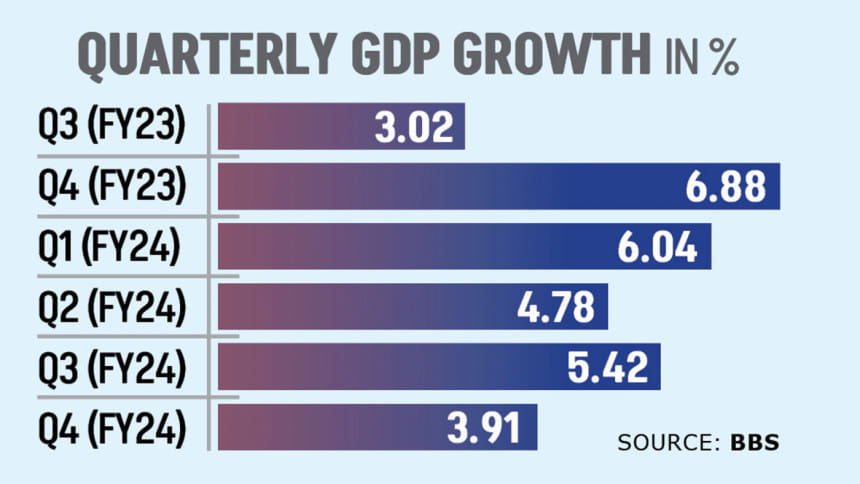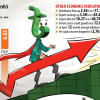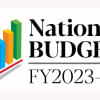GDP growth lowest in five quarters

Bangladesh recorded its lowest economic growth in the past five quarters in the last quarter of fiscal 2023-24 due to contractionary monetary and fiscal policies to tackle the dwindling forex reserves and high inflation.
Between April and June this year, the GDP grew by 3.91 percent, according to the latest published quarterly data by the Bangladesh Bureau of Statistics (BBS) yesterday. A year earlier, the country clocked in 6.88 percent GDP growth.
In the previous quarter, the GDP grew by 5.42 percent, as per the latest release from BBS, down from the 6.12 percent announced by the previous Awami League government.
One of the reasons behind the low growth could be that BBS did not manipulate data as before, said Selim Raihan, executive director of the South Asian Network on Economic Modelling.
"The economy suffered such low growth at a time when the country's political scenario was calm."
Over the past two years, the economy faced high inflation and dwindling foreign currency reserves, he said.
At the end of May, gross foreign reserves dropped to $18.7 billion, while the net reserves were about $4-5 billion less, according to data from the Bangladesh Bank.
"There was no private investment while imports also shrunk. So, the latest data highlights the real picture of the economy," said Raihan, also a professor at the University of Dhaka's economics department.
At the end of June, export earnings dropped by 5.89 percent and imports by 10.61 percent.
Raw material imports declined by 15.9 percent in the last fiscal year, while capital machinery import fell 23.86 percent, according to BB's letters of credit settlement statistics.
BBS's latest quarterly data shows the country's industry grew by 3.98 percent, down from 10.16 percent a year earlier.
The service sector grew by 3.67 percent in the fourth quarter of fiscal 2023-24, down from 4.82 percent a year earlier.
The agriculture sector grew by 5.27 percent during the quarter, down from 6.55 percent a year earlier.
In May this year, BBS published provisional GDP data for fiscal 2023-23, which projected a 5.82 percent growth.
However, the International Monetary Fund (IMF) estimated Bangladesh's GDP growth was 5.4 percent last fiscal year, while the World Bank projected 5.2 percent growth.
Bangladesh's real GDP growth is estimated to have moderated in fiscal 2023-24 driven by weak consumption and export growth on the demand side, said the WB in its "Bangladesh Development Update" released this month.
Despite the improvement from the previous year, private consumption growth was still lower than the average of 5.7 percent in the previous decade, as elevated inflation affected consumption through reduced purchasing power.
"Government consumption slowed to coordinate fiscal policy with the contractionary monetary policy carried out in response to the high inflation," it said.
Capital expenditure also remained muted with the implementation rate of the annual development programme at only 80.9 percent in fiscal 2023-24.
Exports growth also moderated in fiscal 2023-24 due to rising input costs, weak global demand and supply chain disruptions.
On the supply side, industrial growth is estimated to have moderated to 5.8 percent in fiscal 2023-24.
Industrial growth was affected by lower imports caused by a shortage of foreign currency in the banking system, rising interest rates and high energy prices.
Gas supplies were disrupted due to lower domestic production and the damage caused by cyclone Remal to one of the two floating storage and regasification units in Bangladesh.
Construction growth also slowed due to a rise in the building material price index by 6.1 percent and a decline in demand, the report added.

 For all latest news, follow The Daily Star's Google News channel.
For all latest news, follow The Daily Star's Google News channel. 








Comments